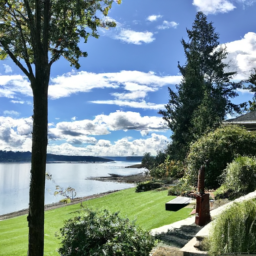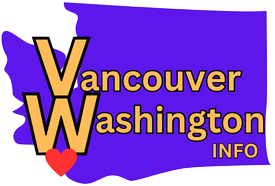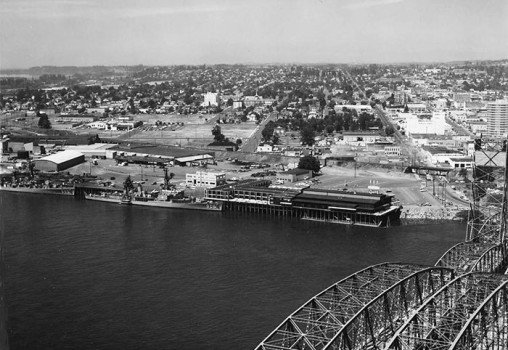
A Brief History of Vancouver Washington
Table of Contents
ToggleA Brief History of Vancouver Washington
In this article, you’ll learn about the fascinating history of Vancouver, Washington. You’ll be transported back in time as we explore the origins and development of this vibrant city nestled in the Pacific Northwest. From its earliest days as a trading post to its growth as a hub for industry and commerce, Vancouver has a rich history that has shaped its present-day identity.
Vancouver’s history dates back to the early 19th century when it served as a fur trading outpost for the Hudson’s Bay Company. Originally known as Fort Vancouver, it was a vital center for the fur trade industry in the region. Over the years, the city experienced significant transformations, from being a key military post during the Civil War to a booming transportation and manufacturing hub in the early 20th century. Today, Vancouver is a thriving city with a blend of natural beauty, cultural diversity, and a strong sense of community. Delve into the pages of history as we uncover the remarkable journey that Vancouver has embarked upon.
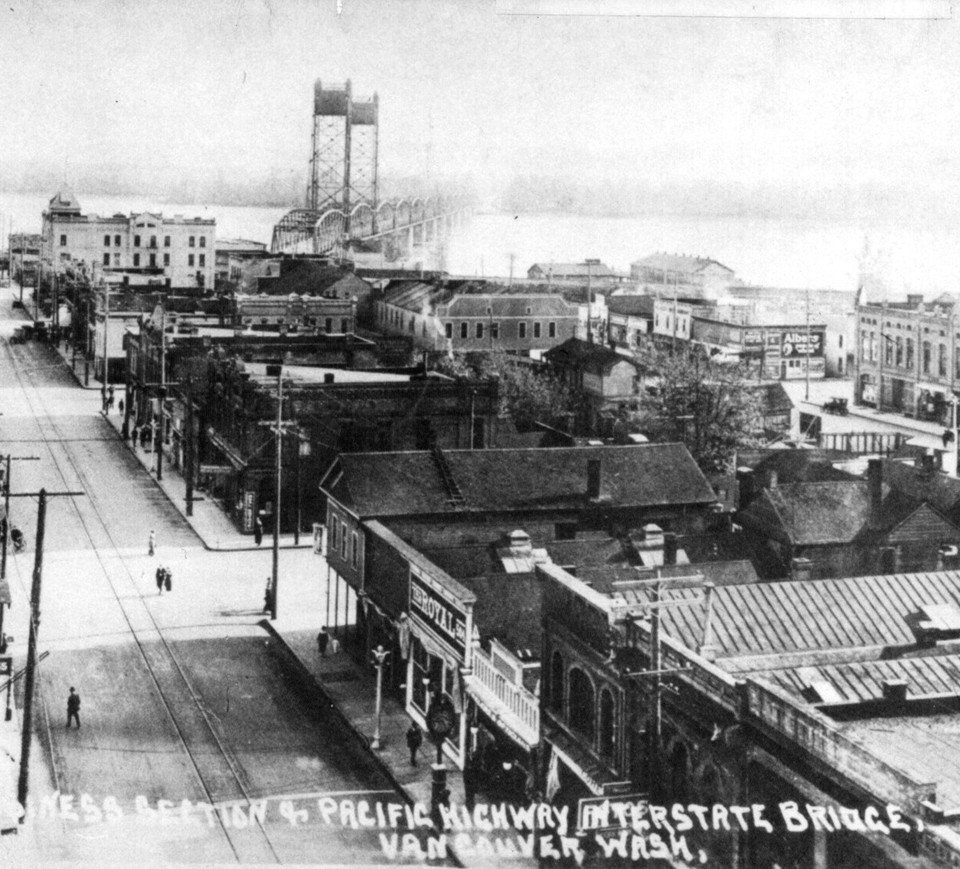
Early Exploration and Native American Settlement
The First European Explorers
The history of Vancouver, Washington dates back centuries, long before the city’s incorporation and industrial growth. The region was first explored by European navigators in the late 18th century. British explorer Captain George Vancouver was one of the first to set foot in the area, sailing along the shores of the Columbia River in 1792. However, it is important to note that long before European arrival, the land was inhabited by Native American tribes who had formed their own settlements and communities.
The Impact of Lewis and Clark Expedition
Another milestone in the history of Vancouver was the Lewis and Clark Expedition, which arrived in the area in 1805. Led by Meriwether Lewis and William Clark, this extraordinary journey was commissioned by then-President Thomas Jefferson to explore the newly acquired Louisiana Purchase territory. The expedition camped near present-day Vancouver, establishing a close relationship with the local Native American tribes, most notably the Chinook people.
Native American Tribes in the Vancouver Area
The Vancouver area was home to several Native American tribes, including the Chinook, Klickitat, and Cowlitz. These tribes had developed a rich culture and way of life, thriving off the abundant natural resources found in the region. They had established their own villages, fished the Columbia River, and traded with neighboring tribes. The arrival of European explorers and settlers brought significant changes to their way of life, leading to conflicts and disruptions in their communities.
Hudson’s Bay Company and Fort Vancouver
Establishment of Fort Vancouver
In 1825, the Hudson’s Bay Company, a British fur trading company, established a trading post known as Fort Vancouver. The fort quickly became a vital center for fur trade in the Pacific Northwest, attracting trappers, settlers, and traders from around the region. Built on the north bank of the Columbia River, Fort Vancouver played a crucial role in shaping the early development of the area.
The Influence of Hudson’s Bay Company
Under the leadership of Chief Factor John McLoughlin, Fort Vancouver grew into a bustling hub of activity. McLoughlin’s management and strategic decisions made the Hudson’s Bay Company a dominant force in the region’s fur trade. The company exerted a significant influence on the local economy and Native American relations, assisting in the establishment of trade networks and cultural exchanges.
The Fur Trading Era in Vancouver
The fur trading era brought dramatic changes to the landscape and demographics of Vancouver. The demand for beaver pelts led to the exploration and trapping of previously uncharted lands. The arrival of trappers and settlers shifted the cultural dynamics of the area, as more Europeans began to settle permanently, leading to the expansion of agriculture, logging, and other industries.
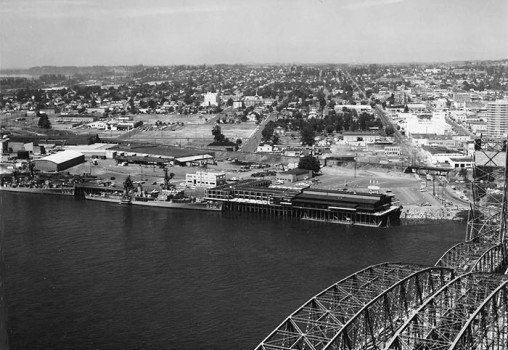
Founding and Incorporation
John McLoughlin and the Founding of Vancouver
The founding of Vancouver, Washington can be attributed to the vision and efforts of Chief Factor John McLoughlin. Despite his British roots, McLoughlin played a pivotal role in promoting settlement and development in the region. He saw the potential for growth and prosperity in the area, and his actions laid the foundation for the future city.
Incorporation as a City in Washington Territory
Vancouver officially became a city on January 23, 1857, when it was incorporated as part of the Washington Territory. The city’s location along the Columbia River and its proximity to Portland, Oregon, played a considerable role in its early growth and development. The settlers who came to Vancouver saw immense potential in the fertile land and the opportunities presented by the river for trade and transportation.
Early Development and Infrastructure
In its early years as a city, Vancouver focused on developing its infrastructure and establishing a solid foundation for growth. Roads, bridges, and other transportation networks were constructed to connect the city with other settlements in the region. The establishment of schools, churches, and other community institutions also played a crucial role in shaping the identity of the young city.
Economic Growth and Industrialization
The Rise of the Lumber Industry
As Vancouver continued to grow, the lumber industry emerged as a key economic driver. The vast forests surrounding the city provided an abundant source of timber. Logging operations and sawmills sprang up, attracting workers and investors from near and far. The lumber industry became one of the primary employers in the region, fueling the city’s economic growth and prosperity.
Development of Railways and Transportation
The development of railways further bolstered Vancouver’s economic growth and connectivity. The arrival of the Northern Pacific Railway in the late 19th century provided a vital link between Vancouver and other major cities in the Northwest. This transportation network facilitated the efficient movement of goods and people, enabling Vancouver to thrive as a trade hub.
Significance of the Columbia River
The Columbia River played a significant role in Vancouver’s economic prosperity. The river allowed for the transport of goods, serving as a vital artery for trade and commerce. It facilitated the shipment of lumber, agricultural products, and other resources, driving the city’s economy and making it an attractive destination for businesses and settlers.
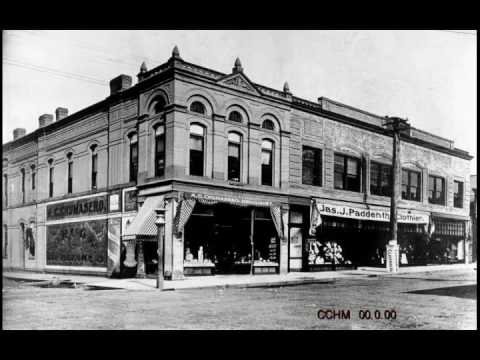
World Wars and Military Presence
The Impact of World War I on Vancouver
The outbreak of World War I brought new opportunities and challenges to Vancouver. The city experienced a surge in industrial activity, as companies shifted their production to support the war effort. Shipbuilding, munitions manufacturing, and other war-related industries boomed, providing employment opportunities and economic growth. However, the war also caused hardships and sacrifices for the local community.
Vancouver Barracks and Its Military Importance
Vancouver has a long history of military presence, dating back to the establishment of Vancouver Barracks in 1849. The barracks served as a U.S. Army post and played a crucial role in protecting and securing the Pacific Northwest. Over the years, the barracks expanded, becoming a training ground for troops and a center for military operations.
World War II and the Shipyards
During World War II, Vancouver once again played a pivotal role in supporting the war effort. The Kaiser Shipyards were established in the city, employing thousands of workers who built Liberty ships for the U.S. Navy. The shipyard became one of the largest and most productive in the country, contributing significantly to the war effort and transforming Vancouver into a major industrial center.
Post-War Expansion and Suburbanization
Population Growth and Urban Development
Following the end of World War II, Vancouver experienced a population boom as soldiers returned home and sought new opportunities. The city’s proximity to Portland and its expanding industrial base made it an attractive destination for families and individuals looking for jobs and a high quality of life. Subdivisions were constructed, and the city expanded rapidly.
The Rise of Suburban Communities
The post-war era also witnessed the rise of suburban communities in the Vancouver area. The increasing availability of automobiles and the construction of highways, such as Interstate 5, made it easier for people to commute between the city and surrounding suburbs. This suburbanization trend led to the development of new neighborhoods and the growth of residential areas outside of downtown.
The Impact of Interstate 5
The construction of Interstate 5, an important highway that runs through Vancouver, further transformed the city and its surrounding region. It enhanced connectivity and facilitated the movement of goods and people, fostering economic growth and influencing the expansion of businesses along the highway corridor. However, the construction of the highway also had its drawbacks, as it required the demolition of certain neighborhoods and caused some environmental concerns.
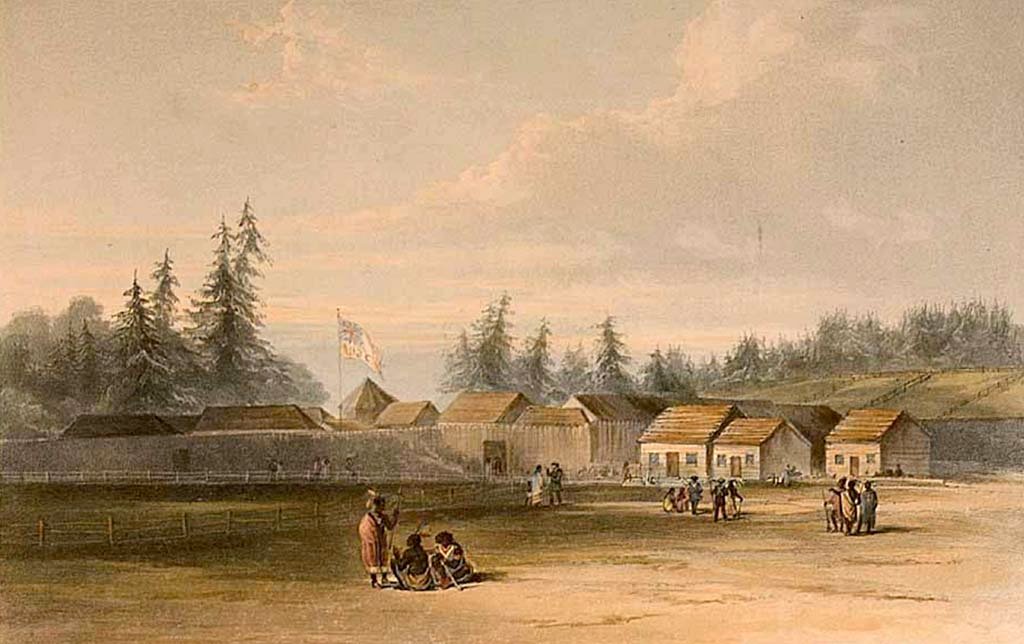
Cultural and Artistic Heritage
Rebirth of Downtown Vancouver
In recent decades, Vancouver has undergone a significant revitalization process, particularly in its downtown area. Efforts have been made to preserve and restore historic buildings, resulting in the rejuvenation of the city’s cultural and architectural heritage. Today, downtown Vancouver boasts a vibrant mix of shops, restaurants, and cultural institutions that attract both residents and visitors alike.
The Role of Vancouver’s Arts Scene
Vancouver’s arts scene has played a crucial role in shaping the city’s cultural identity. Local artists, musicians, and performers have contributed to the city’s vibrant creative landscape. Art galleries, theaters, and music venues offer opportunities for residents to engage with various art forms and celebrate local talent. The arts community has become an integral part of the city’s social fabric.
Cultural Events and Festivals
Vancouver takes pride in its diverse cultural events and festivals, which bring the community together and showcase the city’s heritage. Festivals such as the Vancouver Wine & Jazz Festival, Independence Day at Fort Vancouver, and the Recycled Arts Festival attract visitors from near and far. These events not only celebrate the city’s culture but also contribute to its economic vitality.
Modern Growth and Economic Diversification
High-Tech and Manufacturing Industries
In recent years, Vancouver has witnessed the growth of high-tech and manufacturing industries. The city’s strategic location, skilled workforce, and supportive business environment have attracted companies in the tech sector. Vancouver’s high-tech business park, the Columbia Tech Center, has become a hub for innovation and entrepreneurship, fostering job creation and economic diversification.
Education and Healthcare Sectors
Vancouver has also emerged as an education and healthcare hub. The city is home to Washington State University Vancouver and Clark College, providing higher education opportunities to students from the region and beyond. In addition, Vancouver’s healthcare sector has expanded with the presence of multiple medical centers and hospitals, offering quality healthcare services to the community.
Revitalization of Waterfront District
One of the most significant recent developments in Vancouver is the revitalization of its waterfront district. The city has invested in transforming the former industrial area into a vibrant public space that attracts residents and visitors. The waterfront now features parks, trails, restaurants, and shops, creating a pleasant environment for recreational activities and community gatherings.
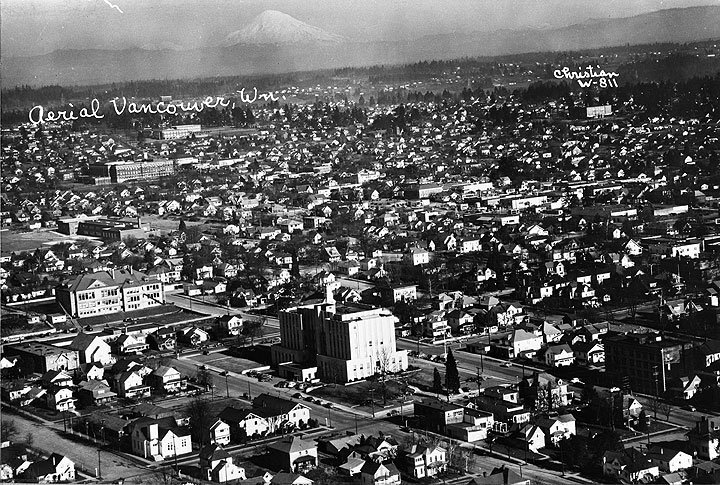
Environmental Conservation and Sustainability
Efforts for Green Initiatives
Vancouver has made significant strides in promoting environmental conservation and sustainability. The city has implemented various green initiatives, such as the use of renewable energy sources, recycling programs, and the development of public transportation infrastructure. These efforts aim to reduce the city’s carbon footprint and preserve its natural resources for future generations.
Protection of Natural Areas and Parks
Vancouver boasts numerous natural areas and parks that provide opportunities for outdoor recreation and showcase the region’s natural beauty. Forest Park, the Columbia River Gorge, and Mount St. Helens are among the iconic locations near Vancouver that offer breathtaking views and a chance to connect with nature. These areas are protected and cherished by the community.
Promotion of Eco-Tourism
Vancouver has embraced eco-tourism as a way to promote sustainable economic development. The city’s proximity to natural wonders like Mount Hood, the Pacific Ocean, and the Columbia River Gorge makes it an ideal destination for those seeking outdoor adventures. Local businesses and organizations have embraced eco-friendly practices and strive to provide visitors with unforgettable experiences while preserving the environment.
Conclusion
In conclusion, the history of Vancouver, Washington is a rich tapestry woven by early Native American settlement, European exploration and trade, industrial growth, and cultural development. From the initial encounters between European explorers and Native American tribes to the modern, diverse city it has become, Vancouver has constantly adapted and transformed. The city’s history is marked by resilience, innovation, and a commitment to preserving its heritage while embracing the opportunities of the future. As Vancouver continues to grow and evolve, it remains an essential part of the Pacific Northwest’s landscape, thriving with economic diversity, cultural vibrancy, and a deep respect for its natural surroundings.
You May Also Like
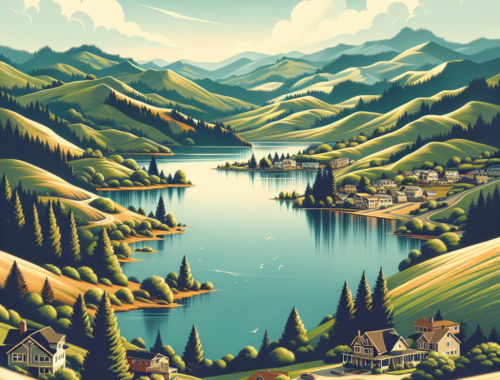
Hills at Round Lake & Windust Meadows Tour | Camas WA Neighborhood Tour
14 December 2023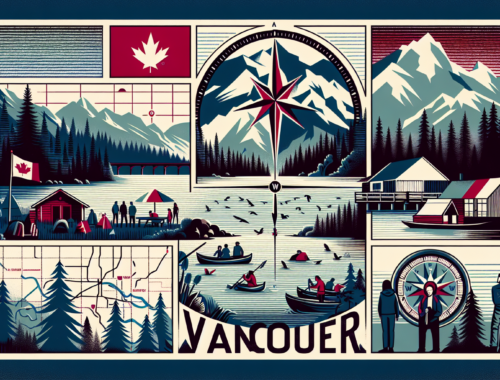
Pros and Cons of Living in Vancouver, Washington
15 January 2024